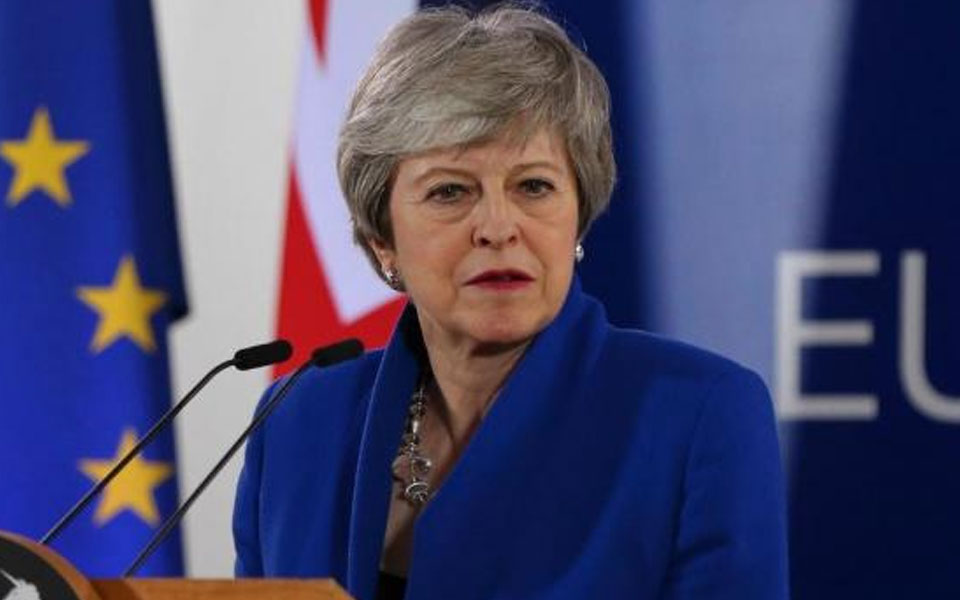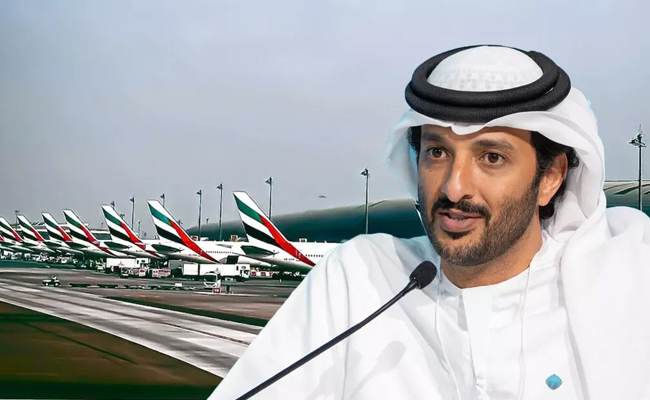Brussels: European leaders offered Britain a six-month delay to its Brexit departure Thursday, apparently saving the continent from a chaotic no-deal departure at the end of week.
If May accepts the extension and London remains in the EU after May 22, British voters will have to take part in European parliamentary elections.
France's President Emmanuel Macron was the strongest voice opposing a long extension, but most leaders backed it and the French had to settle for a promise that the delay will be reviewed at an EU summit on June 21.
"EU27 has agreed an extension of Art. 50. I will now meet PM @theresa_may for the UK government's agreement," summit host and EU Council president Donald Tusk tweeted as May returned to the summit to give her verdict on the plan.
Most of the 27 European leaders gathered in Brussels, including German Chancellor Angela Merkel, had backed a plan for Brexit to be postponed for up to a year.
But as the talks went late into the night, Macron - with backing from Belgium, Austria and some smaller EU states - held out for a short delay of only a few weeks and demanded solid guarantees that London would not interfere in EU business during that time.
May has already said that if Britain is still an EU member when the European parliamentary election begins on May 23, UK voters will take part. But some EU leaders are unconvinced that she is sincere, despite one official telling reporters her presentation had been "solid".
Without a postponement, Britain would be due to end its 46-year membership of the European Union at midnight (local time) on Friday with no deal, risking economic chaos on both sides of the Channel.
May agreed a divorce deal with the EU last November but MPs in London have rejected it three times, forcing her to turn to the main opposition Labour party in a bid to find a way through.
But these talks are moving slowly, and the prime minister is under intense pressure from hardline Brexit supporters in her Conservative party not to compromise.
As she arrived, May said she wanted to leave the EU "as soon as possible".
"I've asked for an extension to June 30 but what is important is that any extension enables us to leave at the point at which we ratify the withdrawal agreement," she said.
She said she still hoped to leave the EU on May 22, the last day before Britain must hold European Parliament elections.
For as long as Britain is in the EU, it must take part in bloc elections for them to be valid.
EU leaders have already agreed one delay to Brexit, from March 29 to April 12, and Tusk has warned there is "little reason to believe" the British parliament can ratify May's deal by June 30.
A draft copy of the summit conclusions seen by AFP before the leaders sat down to finalise it said "an extension should last only as long as necessary and, in any event, no longer than [XX.XX.XXXX]." "If the withdrawal agreement is ratified by both parties before this date, the withdrawal will take place on the first day of the following month," the draft stated.
EU members want to ensure that a semi-detached Britain does not seek leverage in Brexit talks by intervening in choosing the next head of the European Commission or the next multi-year EU budget.
May's ministers have begun cross-party talks with Labour on a compromise to get the withdrawal agreement through the House of Commons.
Labour leader Jeremy Corbyn wants Britain to commit to remaining within the EU customs union, an idea that many in Europe would be keen to accommodate.
"We would be generous in negotiating that, understanding that the UK couldn't be a silent partner in such an arrangement -- it would have to have a say in decisions being made," Irish premier Leo Varadkar said as he arrived at the summit.
Let the Truth be known. If you read VB and like VB, please be a VB Supporter and Help us deliver the Truth to one and all.
Udupi: Manju Kola, husband of former Udupi City Municipal Council Vice-President Lakshmi Manjunath and a Hindutva organisation leader, was stabbed during a meeting held to settle a dispute related to a love affair at Malpe on Tuesday night.
Police have arrested five accused in connection with the case.
According to information available, Manju Kola had reportedly called for a compromise meeting near Malpe beach in the Palimaru area on Tuesday evening to resolve an issue involving a couple. During the discussion, a heated argument broke out and a youth allegedly stabbed Manju Kola.
He sustained injuries to his abdomen and collapsed. He was immediately shifted to a private hospital in Udupi for treatment.
Udupi Superintendent of Police Hariram Shankar said that five accused have been arrested in the case. As per preliminary investigation, the incident appears to have occurred due to personal reasons. He clarified that there is no communal angle to the incident and urged the public not to spread rumours.
The injured Manju Kola is out of danger and his condition is stable, the SP said.





